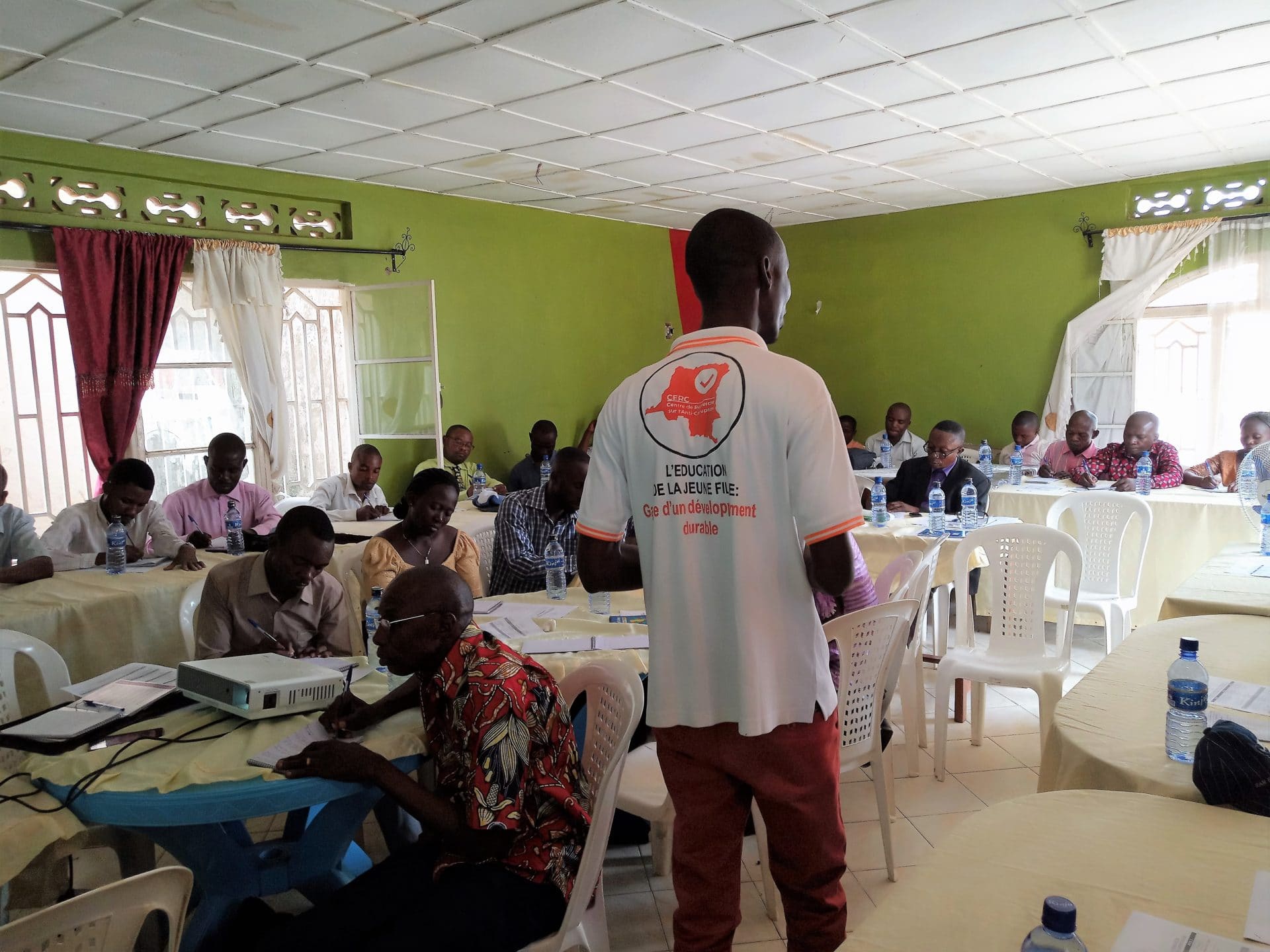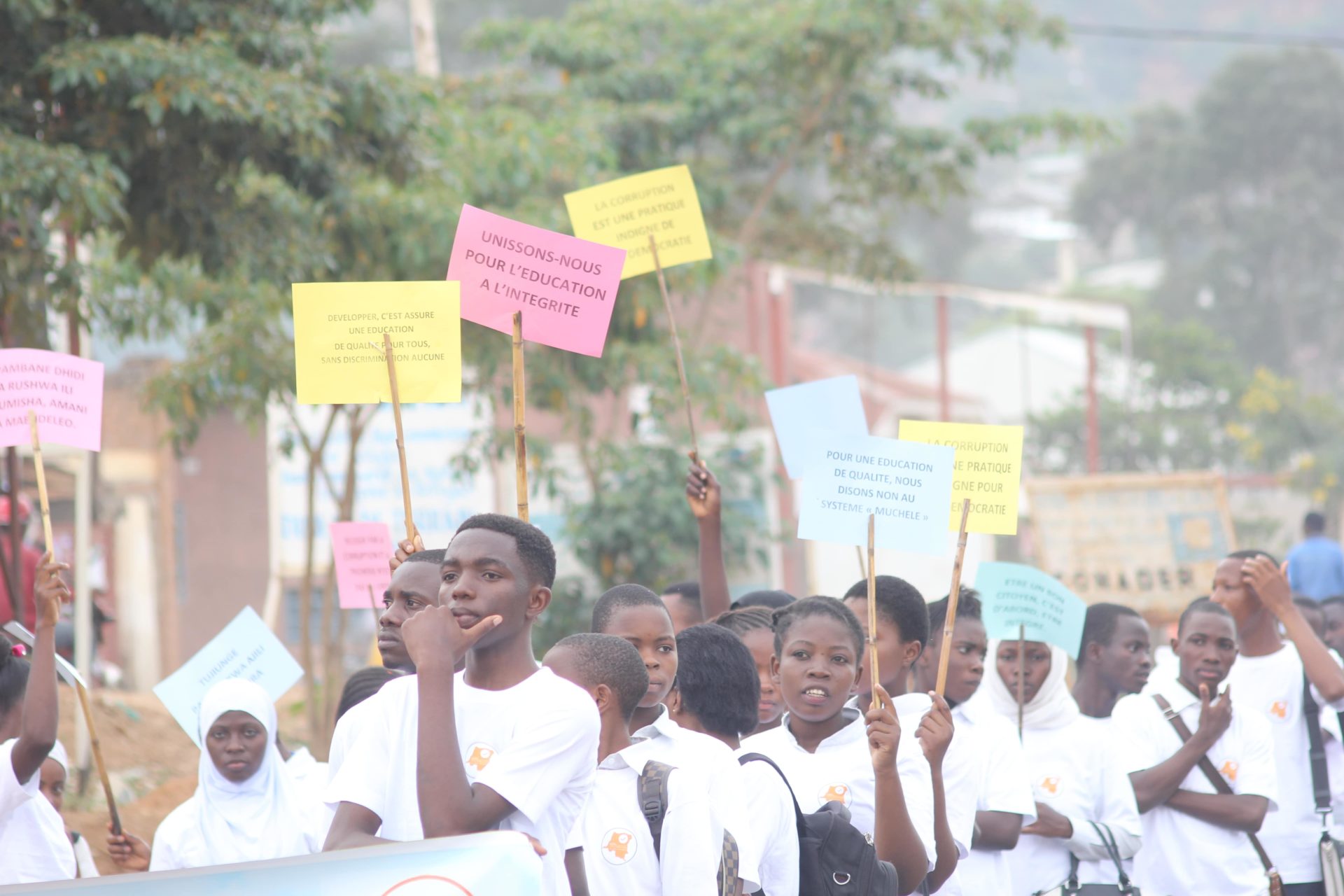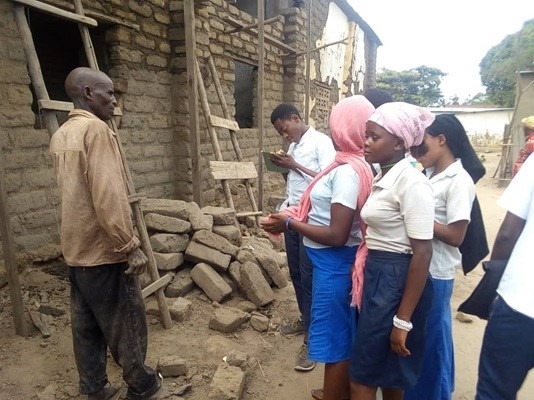The Congo (Uvira)
In Democratic Republic of the Congo, poor educational access and poor quality education is linked with the historic instability the country has seen since Africa’s First World War in 1996.
Corruption hampers all development efforts, but it is a debilitating presence in the education sector, undermining the goal of ensuring that all children and youth go to school and learn. In a country where international aid is meant to improve the quality of life, corruption denies this and can put future funding in jeopardy.
Examples of corruption in education abound. Academic fraud is rife and is regarded as a serious threat to integrity and reliability of certification in secondary education. Procurement wastage in the education sector, including school buildings, false maintenance costs and text books paid for but never received, costs the public dearly. And “ghost” or absentee teachers who feature on the list of active teachers in schools are a huge drain on parent’s spending. As a result, educational performance among the poorest populations is severely hampered and the system’s ability to deliver is harmed.
Stepping up the fight against corruption in education is necessary, not only to keep children in school and meet literacy and development goals, but also to ensure that the next generation is prepared to say no to corruption, and get skills and knowledge allow them to monitor and fix problems within public and education services and infrastructures.
Young people have the potential to drive real change as today’s citizens and tomorrow’s leaders. Many young people are passionate about creating a better services in their schools and communities. To act on their values, they need the skills and knowledge that School Based Integrity Education seeks to offer through ‘Integrity Clubs’.
Integrity Clubs are voluntary, student-led spaces with members committed to inspiring youth (future leaders) and investing in those who will be making public decisions in the near future.
Established in Uvira, a city in the South Kivu Province of the Democratic Republic of Congo, the Integrity Clubs offer an intensive integrity building training for students aged 14 to 19 years old on the concepts of gender equality and social inclusion, civic empowerment, democracy, public monitoring, transparency and accountability and inspires trained students to stand up to monitor education and infrastructure services in their schools and communities and provide citizen-led oversight and feedback through DevelopmentCheck.
DevelopmentCheck is a reporting app and website that helps youth to engage directly with service providers and government to make sure the projects that are supposed to benefit them are delivered as promised.
Students acting for Honesty, Integrity and Equality mobilises students with innovations in technology, and education to monitor and demand accountability from project implementers and service providers. Corruption impedes development, but information, problem solving and transparency reduce its risk.
Co-founder and CEO of the Anti-Corruption Center, Heri Bitamala explains:
“By working with students in DR Congo, we intend to build integrity in corrupt environments from grassroots level and reverse the negative impact that corruption has on projects and services that benefit the youth, demonstrated through the number of projects successfully completed and the improvement. Integrity is amplified when youth monitors become working members of society and they influence the sectors and communities they are a part of.”
Between 2017 and 2018 Heri’s team trained 525 students in 35 Integrity Clubs. Students used Development Check to monitor 36 infrastructure projects and 36 services for their communities. The youth demonstrated to themselves and to others that the power to make a positive difference in their lives and that they have the agency to make a difference in their communities. Over 50% of monitors they have trained are female.
Bio
Co-founder and CEO, Centre de Recherche sur l'Anti-Corruption
Project leader
Heri Bitamala, Co-founder and CEO, Centre de Recherche sur l'Anti-Corruption
Support the Atlas
We want the Atlas of the Future media platform and our event to be available to everybody, everywhere for free – always. Fancy helping us spread stories of hope and optimism to create a better tomorrow? For those able, we'd be grateful for any donation.
- Please support the Atlas here
- Thank you!

Teachers and principal's training on anti-corruption measures in in schools

Students in Uvira march to raise awareness about corruption and mismanagement in education system

Community monitors inspect the construction of school building in Uvira

Community monitors inspect the rehabilitation of destroyed school building in Uvira

